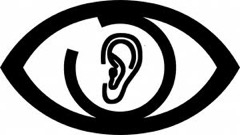OrdinaryTimes 1.26-Know-Ledge

Steve’s not a database, but a judge—or has been a judge for most of his career. His work’s not a matter of rule matching, since every case is different and the law ambiguous. His challenge leans toward finding common patterns that might integrate situation with precedent, dilemma with resolution.
”I can visualize the law,” Steve claims. “It’s like a sense, like seeing or smelling. I take a deep whiff and run a situation over that sense, and I’m not often far off from the gist.”
We’d been chatting about education, fussing over how real understanding can’t be encapsulated into an exam question. Testing well might have nothing to do with knowing about anything except how to take tests. I’ve noticed how my computer continues to try to influence me to do stuff as a computer would under the guise of teaching me how to use it. I took a solemn oath when I first started using these Barbie and Ken computers, that I would never learn how to program them. This extends to remembering keyboard shortcuts and fancy techniques because these seem to stimulate reptilian parts of my brain, and much of my work requires my human presence.
I commented to Steve how I was feeling smarter as we talked. I felt reassured. Even a practicing judge has felt like he was hiding out for most of his career. “People tell me I’m smart,” he summarized, “and I’ve always been waiting for the other shoe to drop once they learn that I’m not.”
What passes for knowledge now would make any computer proud, but should leave any human a little embarrassed for simply emulating what any dumb machine could do. There must be ten thousand intelligences in the world and few depend upon categorical knowledge. Most seem to operate like a sense organ. Ask a mechanic. Ask a mathematician. Ask a judge. Each develops a sixth sense that guides their work, and few can cite any explicit case that informs their perspective. They’ve integrated much, retaining few indexes and even fewer keywords.
©2013 by David A. Schmaltz - all rights reserved


